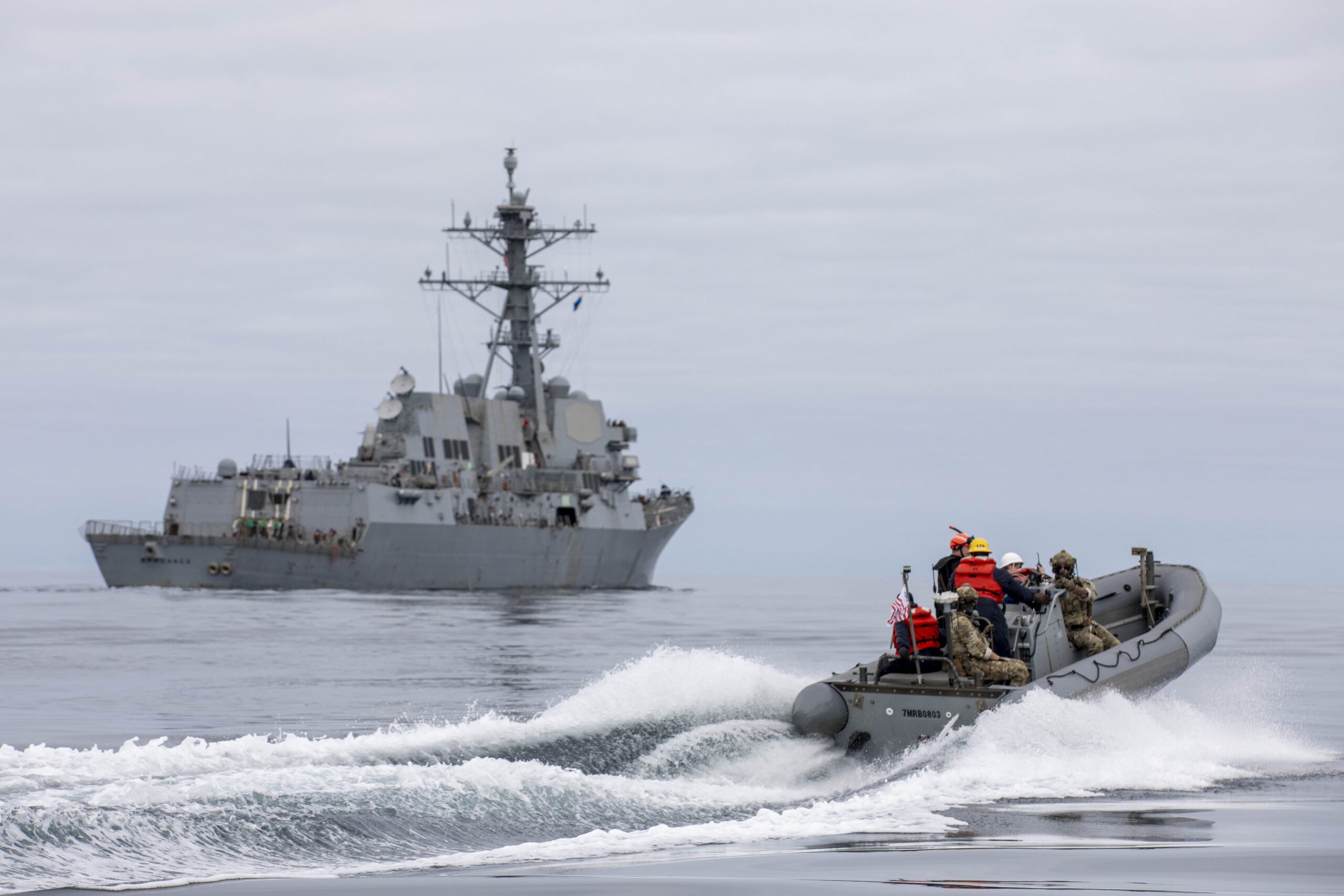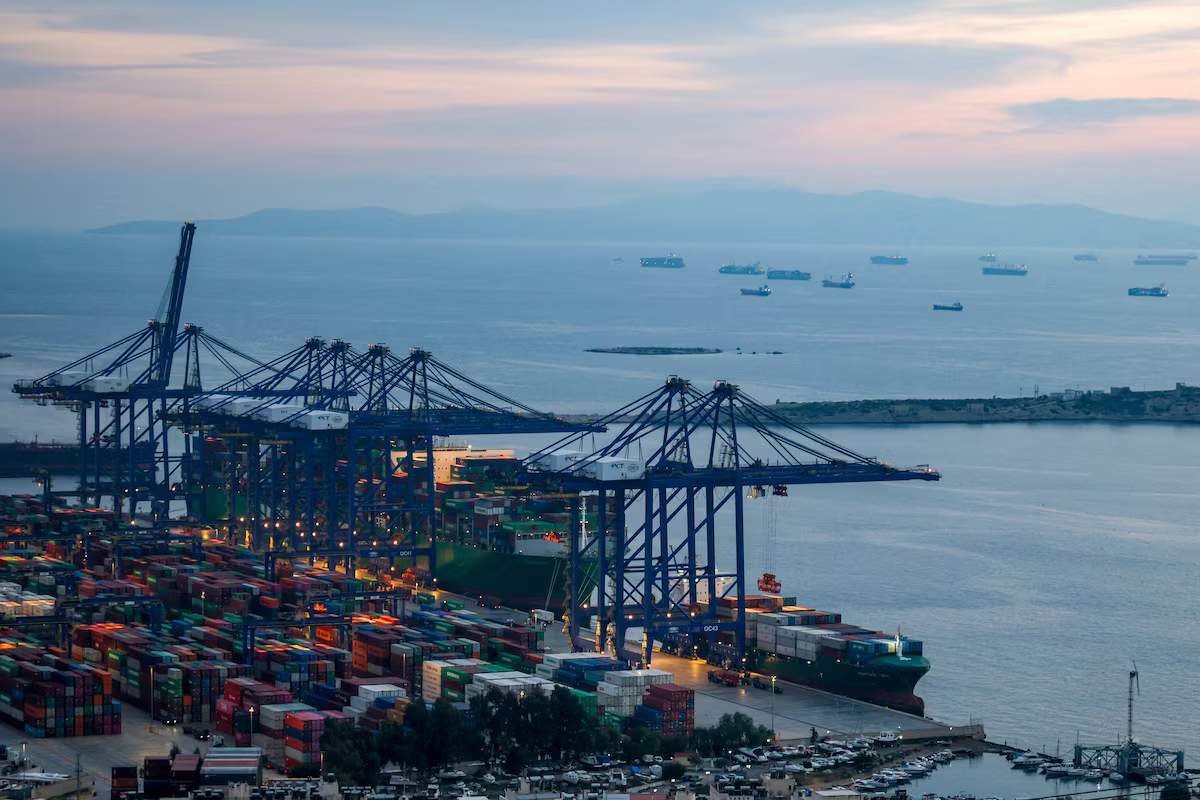The United States has reiterated its commitment to maintaining a “defensive presence” in the Red Sea as the Houthi rebel group shows no signs of stopping their attacks even after a formal warning, according to U.S. Navy Vice Adm. Brad Cooper, commander of Naval Forces Central Command.
“Let me just say right out front and out of the chute, this operation is entirely defensive in nature,” said Cooper, referring to the U.S.-led Operation Prosperity Guardian naval coalition.
The press briefing (transcript) from Cooper comes a day after the U.S. and eleven of its allies and partners issued a joint statement condemning the attacks and warning the rebel group of consequences if they continue.
Within 24 hours of the joint statement, the U.S. Navy reported that an explosives-laden unmanned surface vessel had detonated in international shipping lanes near both merchant and U.S. Navy ships. The target of the attack remains unclear.
When asked about this development, Cooper noted that the joint statement is independent of Operation Prosperity Guardian and “anything that happens outside of the defensive aspect of this operation is a completely different operation.”
“We are certainly mindful of the continued threat and expect the Houthi attacks may continue,” Cooper said. “I think really importantly, though, our actions in this defensive operation are not just through words, but through deeds.”
This latest incident marks the 25th attack involving Houthi rebels targeting merchant vessels in the Red Sea since November. Cooper said that since the launch of Operation Prosperity Guardian (OPG) in mid-December, approximately 1,500 merchant ships have safely transited the Red Sea. During this time, OPG forces have successfully intercepted and destroyed 19 drones and missiles, as well as sunk three small boats launched by the Houthis. Of the intercepted drones and missiles, 11 were unmanned aerial vehicles, two were cruise missiles, and six were anti-ship cruise missiles.
Although no ships were damaged in the most recent attack, Cooper emphasized that the persistent threat from the Iran-backed Houthi rebels in an international shipping lane is a significant concern. He also noted that 55 nations have direct connections to the targeted ships, whether through the flagging state, the origin or destination of the goods, or the nationalities of the crew members.
“The impacts of these attacks stretch across the globe,” Cooper said. “This is an international problem that requires an international solution.”
The joint statement issued Wednesday was signed by U.S., Australia, Bahrain, Belgium, Canada, Denmark, Germany, Italy, Japan, Netherlands, New Zealand and the United Kingdom. “Ongoing Houthi attacks in the Red Sea are illegal, unacceptable, and profoundly destabilizing,” the statement read in part. “There is no lawful justification for intentionally targeting civilian shipping and naval vessels.”
The statement warned that the Houthis “will bear the responsibility of the consequences should they continue to threaten lives, the global economy and [the] free flow of commerce in the region’s critical waterways.”
Shipping through the Red Sea accounts for approximately 15 percent of global trade, including 8 percent of global grain trade, 12 percent of seaborne oil and 8 percent of the global liquefied natural gas (LNG) trade.
Air Force Maj. Gen. Pat Ryder previously described Operation Prosperity Guardian as a “highway patrol” tasked with responding to and assisting commercial vessels as needed. “It’s a defensive coalition meant to reassure global shipping and mariners that the international community is there to help ensure safe passage,” he said on December 21.
During a Pentagon news conference today, Ryder declined to comment on potential military action in response to the continued attacks, saying, “I will let the joint statement speak for itself.”
On Wednesday, International Maritime Organization Secretary-General Arsenio Dominguez told the UN Security Council that the attacks have resulted in approximately 18 shipping companies choosing to reroute their vessels around South Africa, resulting in longer travel times, increased freight rates, and a negative impact on trade. He also noted that the shipping lane through the Red Sea accounts for 15 percent of global trade.
During the Security Council meeting, Khaled Khiari, Assistant Secretary-General for Middle East, Asia and the Pacific in the Departments of Political and Peacebuilding Affairs and Peace Operations, called for de-escalation, warning that Houthi threats to maritime navigation and the risk of military escalation could have severe consequences particularly for Yemen and the world.

 Join The Club
Join The Club










